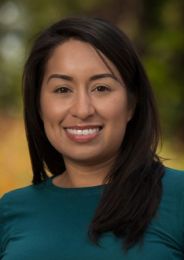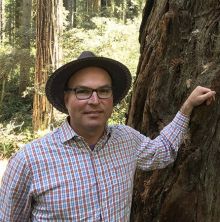 INTRODUCTION TO THE SPECIAL ISSUE: Developing Undergraduate Community Psychology Pedagogy and Research Practice
INTRODUCTION TO THE SPECIAL ISSUE: Developing Undergraduate Community Psychology Pedagogy and Research PracticeLauren F. Lichty, Eylin Palamaro-Munsell, and Jen Wallin-Ruschman
Undergraduate Special Issue Editors' Note
Edited by Eylin Palamaro-Munsell, Lauren F. Lichty, and Jen Wallin-Ruschman, this two-volume special issue, “Developing Undergraduate Community Psychology Pedagogy and Research Practice,” highlights the transformative potential of undergraduate community psychology education and research. Building on experiences practicing community psychology in primarily undergraduate settings, this special issue is designed to serve as a guide for fellow practitioners and as a call to our field. In this introduction, we present key points from each manuscript and highlight cross-cutting themes such as community psychology pedagogy-environment fit and professor-student dynamics that impact practice. We conclude by offering concrete opportunities and an invitation to join us in imagining a Society for Community Research and Action that values and supports undergraduate-focused community psychology pedagogy, research, and practice.
Read more... Bridging Disciplines to Teach Community Psychology: Notes from a Transcommunal Classroom
Bridging Disciplines to Teach Community Psychology: Notes from a Transcommunal ClassroomJanelle M. Silva
Peer Reviewed
This article was originally published in a Special Issue of GJCPP titled, “Developing Undergraduate Community Psychology Pedagogy and Research Practice,” edited by Eylin Palamaro-Munsell, Lauren F. Lichty, & Jen Wallin-Ruschman.
This paper explores how an interdisciplinary pedagogy can amplify community psychology (CP) values in undergraduate education. Sociologist John Brown Childs’ (2003) concept of transcommunality, which emphasizes working across difference through shared practical action via respect, understanding, and communication, illustrates how bridging disciplines can transform CP classrooms.
Read more... Local Lessons: Teaching Place-Based Social Justice through Historical Case Analysis and Service-learning
Local Lessons: Teaching Place-Based Social Justice through Historical Case Analysis and Service-learningBenjamin C. Graham
Peer Reviewed
This article was originally published in a Special Issue of GJCPP titled, “Developing Undergraduate Community Psychology Pedagogy and Research Practice,” edited by Eylin Palamaro-Munsell, Lauren F. Lichty, & Jen Wallin-Ruschman.
This article will provide a four-step curricular design process for identifying local historical cases and developing pedagogical strategies for teaching students how to apply local historical lessons in addressing contemporary issues via service learning.
Read more... A Study on Undergraduate Community at a Historically Black College and University (HBCU)
A Study on Undergraduate Community at a Historically Black College and University (HBCU)
Dawn X. Henderson, Pamela P. Martin, and Katina Harris
Peer Reviewed
This article was originally published in a Special Issue of GJCPP titled, “Developing Undergraduate Community Psychology Pedagogy and Research Practice,” edited by Eylin Palamaro-Munsell, Lauren F. Lichty, & Jen Wallin-Ruschman.
This article presents a case analysis of an undergraduate psychology course that models community psychology pedagogy implemented at an HBCU in the Southeastern region of the United
States.
 Social Problems are Social: Empirical Evidence and Reflections on Integrating Community Psychology into Traditional Curriculum
Social Problems are Social: Empirical Evidence and Reflections on Integrating Community Psychology into Traditional Curriculum
Lauren B. Cattaneo, Rachel Shor, Jenna M. Calton, Kris T. Gebhard, Syeda Y. Buchwach, Nour Elshabassi, and Stephanie Hargrove
Peer Reviewed
This article was originally published in a Special Issue of GJCPP titled, “Developing Undergraduate Community Psychology Pedagogy and Research Practice,” edited by Eylin Palamaro-Munsell, Lauren F. Lichty, & Jen Wallin-Ruschman.
The paper will describe the development and impact of a course that exemplifies the principles and values of community psychology, but does so outside the bounds of a community psychology program or concentration in a large, diverse, public university. The class, Community Engagement for Social Change, has two aims: to teach undergraduates that social problems have social causes, and to engage students in a range of social problem-solving approaches that incorporate that understanding. It accomplishes these aims by introducing a “multi-level analysis” of social problems, using a case study of the social problem of poverty, and requiring that all students complete 20 hours of service in community organizations. The development of the class required strategic thinking and significant retooling in order to attract and promote learning across a broad range of students.
Read more... Undergraduate Community Psychology Research Practice: The Story of the Community Narrative Research Project at Rhodes College
Undergraduate Community Psychology Research Practice: The Story of the Community Narrative Research Project at Rhodes College
Elizabeth Thomas, Marsha D. Walton, Anna Manoogian, Anna Baker-Olson, Bianca Branch, Adele Malpert, Karina Henderson, and Remi Parker
Peer Reviewed
This article was originally published in a Special Issue of GJCPP titled, “Developing Undergraduate Community Psychology Pedagogy and Research Practice,” edited by Eylin Palamaro-Munsell, Lauren F. Lichty, & Jen Wallin-Ruschman.
The Community Narrative Research Project (CNRP) is an undergraduate action research initiative focused on undergraduate students’ experiences of community engagement over time. At the center of the project is the collection and analysis of narratives written by Bonner Scholars at Rhodes College over their four years working in Memphis communities as part of their scholarship. This paper describes the participatory community research model that has evolved in the CNRP, including the voices of undergraduate student leaders in the Bonner Scholars program and undergraduate researchers in developmental and community psychology.
Read more... Sharing Strengths and Struggles in the Classroom and Beyond: Results from the Teaching Community Psychology Survey
Sharing Strengths and Struggles in the Classroom and Beyond: Results from the Teaching Community Psychology SurveyMariah Kornbluh, Danielle Kohfeldt, Lindsay Banks, and Holly Brott
Peer Reviewed
This article was originally published in a Special Issue of GJCPP titled, “Developing Undergraduate Community Psychology Pedagogy and Research Practice,” edited by Eylin Palamaro-Munsell, Lauren F. Lichty, & Jen Wallin-Ruschman.
Research on the state of community psychology (CP) undergraduate education is scarce. This lack of understanding within the discipline hinders the ability to learn from CP educators’ experiences and disseminate effective practices. To begin to address this gap, the current study distributed a survey to CP educators located within the United States, exploring the following questions: 1) what are the demographics, locations, and roles CP-related educators occupy, 2) what are the biggest challenges educators encounter in and outside of the classroom when teaching CP-related content, and 3) what additional resources/supports do educators need from both their institution and the larger professional field to deliver high quality CP educational experiences.
Read more...It may seem odd for a journal devoted to community practice to dedicate a special issue to pedagogy, but community practice is just as indebted to undergraduate CP education as academic institutions that house graduate programs in the field. It is the responsibility of all community psychologists to support the field through supporting those who serve undergrads, including those practitioners who serve as adjunct faculty or lecturers for undergraduate classes.